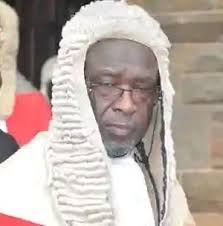Member of Parliament for Old Tafo Hon Vincent Ekow Assafuah writes:
On the very day Ghanaians took to the streets to demonstrate against government intimidation using state security, the President announced the nomination of Justice Paul Baffoe-Bonnie as Chief Justice. This was no coincidence. It was a calculated strategy to divert attention from the protests and shift the national conversation. For weeks, the judiciary had been without a substantive head after the controversial sacking of the Chief Justice. Justice Baffoe-Bonnie, who had been serving in an acting capacity, was quickly elevated. What was meant to be a distraction has instead exposed deeper questions about the independence, integrity, and future of the judiciary.

At a time when the courts are struggling to rebuild their credibility, this appointment threatens to entrench the very weaknesses that have brought enormous shame upon the judiciary. Justice Baffoe-Bonnie has not been a bystander in its decline. He has been part of the orchestration that steadily eroded public confidence in the courts. His name is associated with rulings and judicial conduct that appeared more aligned with political convenience than impartial justice. His nomination does not mark renewal but completes a troubling script that began with the removal of his predecessor.
He has also benefited directly from this compromised process. By assuming the role of Acting Chief Justice immediately after the controversial dismissal, and now accepting the substantive position, he has profited from what many perceive to be a politically driven decision. This is not a reward for integrity but a dividend of loyalty. More dangerously, his appointment does not end with the judiciary alone. It also births the removal of the Electoral Commission, clearing the way for further manipulation of democratic institutions at the highest level.
The judiciary is constitutionally mandated to remain above partisan politics, but under his influence it has grown increasingly politicized. Citizens now see the courts not as neutral arbiters but as extensions of political power. Appointing him permanently will only entrench this dangerous perception. It does not restore dignity to the bench, it entrenches shame.
As Acting Chief Justice, he had the chance to demonstrate independence by standing up for the judiciary after the sacking of his predecessor. That was the moment to protect the sanctity of the bench. Instead, he quietly accepted the process, positioning himself for promotion. In doing so, he failed to defend the very institution he was mandated to protect.
The oath of judicial office demands impartiality and fidelity to the Constitution. Yet by benefiting from political manipulation, Justice Baffoe-Bonnie has undermined the very oath he swore. His readiness to replace a colleague removed by executive power raises serious doubts about his loyalty to judicial independence.
Equally troubling is the timing. Justice Baffoe-Bonnie is due for retirement next year. Why accept the role of Chief Justice with less than a year to serve? What meaningful reforms can he accomplish in such a short time? His acceptance appears less about institutional renewal and more about political convenience and personal gratification.
The truth is simple: this appointment is not about strengthening the judiciary. It is about completing a political script. It rewards complicity, entrenches politicization, and prolongs the collapse of public confidence in the courts. Ghana deserves a Chief Justice whose integrity is unquestionable, whose independence is beyond doubt, and whose leadership can inspire renewal. Justice Paul Baffoe-Bonnie, by his record, his complicity, and the suspicious timing of his appointment, does not meet that standard.
At this crucial hour, when citizens are bravely demanding accountability and resisting intimidation, Ghana must choose renewal over recycling, reform over reward, and independence over compromise. Anything less is a betrayal of justice and a blow to democracy.


